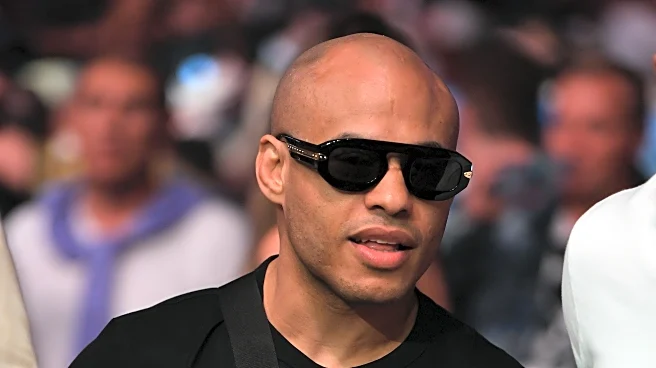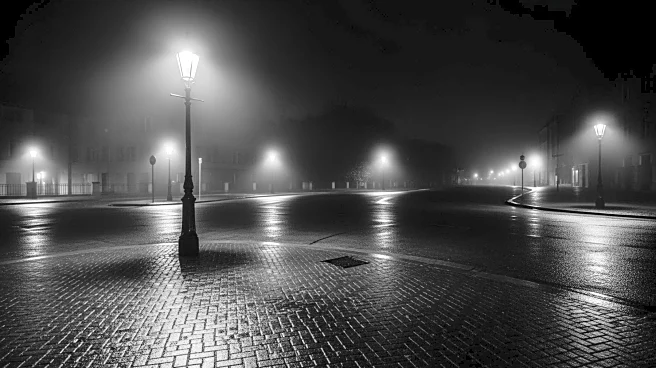What's Happening?
Fadel Shaker, a former Lebanese pop star who became an Islamist militant, appeared in a Beirut court after surrendering earlier this month following 12 years on the run. Shaker had been hiding in the Palestinian refugee camp of Ein el-Hilweh since 2013,
after violent clashes between Sunni Muslim militants and the Lebanese army in Sidon. He was previously sentenced in absentia to 22 years in prison for supporting a terrorist group. As part of a deal to turn himself in, his previous sentences will be dropped, and he will face new charges related to crimes against the military. His court appearance was for preliminary questioning.
Why It's Important?
The case of Fadel Shaker highlights the complex intersection of celebrity, politics, and militancy in the Middle East. Shaker's transformation from a pop star to a militant reflects broader regional tensions and the influence of radical clerics. His surrender and court appearance may impact public perceptions of justice and reconciliation in Lebanon, a country grappling with sectarian divisions and political instability. The legal proceedings could set a precedent for handling similar cases involving individuals who have shifted from public figures to militants.
What's Next?
Shaker's legal journey will continue as he faces new charges related to his alleged crimes against the military. The Lebanese judicial system will likely scrutinize his past actions and affiliations, potentially influencing future cases involving militants. The outcome of Shaker's trial could affect Lebanon's approach to dealing with individuals involved in militancy, especially those with high public profiles. Stakeholders, including political leaders and civil society groups, may react to the trial's developments, shaping public discourse on justice and security.
Beyond the Headlines
Shaker's case raises questions about the role of cultural figures in political movements and the impact of radicalization on personal and public identities. It underscores the challenges faced by societies in reconciling the past actions of individuals who have shifted dramatically in their public roles. The trial may also prompt discussions on the ethical responsibilities of celebrities and the influence of religious and political ideologies on personal choices.
















